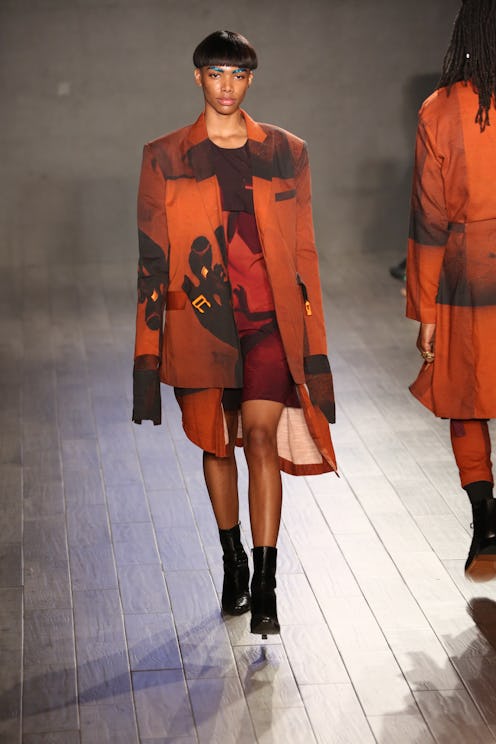
Until very recently, there was a critical void in the fashion world: Where do you go to shop for luxury and emerging African designer brands? Since launching in September 2018, The Folklore has become that very destination. The brainchild of writer and entrepreneur Amira Rasool, it serves a platform where consumers can learn about influential and up-and-coming African labels like Maxhosa, MmusoMaxwell, and Orange Culture.
The Folklore is now expanding its reach with a new podcast called “Our Folklore,” aimed at highlighting Africa’s growing fashion and creative industries. The first episode, which drops today, features a discussion about globalizing Africa’s luxury brands between Orange Culture founder Adebayo Oke-Lawal, stylist Alexander Julian, head designer at Jonathan Simkhai Nana Yaa Asare-Boadu, and The Cut social media editor Nana Agyemang. The four industry leaders were in conversation at a panel that took place during New York Fashion Week.
“People suggest that we aren’t worth our prices or we don’t make quality,” Oke-Lawal tells Bustle. “We have satisfied customers all over the world. That is proof we can make quality.”
Another common misconception African designers face? “That we only use Ankara, which is something people try to box you into when you’re an ‘African designer,’” Oke-Lawal explains. “We create all our prints, and we find non-cliché ways to tell our story.”
Indeed, Orange Culture’s SS20 collection is a kaleidoscope of colors and textures. Although the label is technically menswear, the pieces are gender-inclusive thanks to a design philosophy rooted in unabashed experimentation.
“Culturally, we are from a space that’s a lover of color,” he shares. “Our traditional wear and way of living is so colorful. We decided to express that in the way we build our fashion. We don’t really care what the world feels about color — we choose to explore it super unapologetically.”
In fact, the brand name, which references the color Orange, stems from a profoundly personal place. Oke-Lawal recounts a story of writing an article in high school called “Orange Boy,” which was about growing up and being bullied.
“My expression of masculinity was always being questioned,” he reveals. “Orange Boy became this character a lot of boys and girls found peace and acceptance in.”
He began writing as Orange Boy, answering questions from people who would tell him about the problems and challenges they were experiencing.
“They found some level of acceptance in Orange Boy,” he says. “When I started my brand, I wanted it to be a movement for people like myself who felt they were constantly having to define and explain how they express their masculinity or femininity, or felt like outsiders and were being bullied for it. Orange Culture is that culture of acceptance and celebration of diverse identities.”